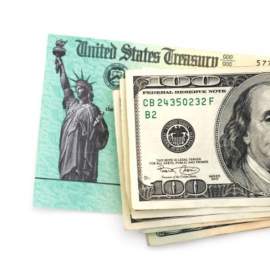
Tentative Tax at a Glance

Tentative tax is the amount that an individual can take as a minimum tax against an estate tax. The tentative tax is determined after all exemptions and deductions have been taken to lower tax liability. A tentative tax is found by placing the total value of an estate into the estate tax bracket. The estate tax bracket will have estate value ranges in which a taxpayer can place the value. If the value of an estate falls within that range, one can find what their tentative tax would be on the value of the estate. That tax is then added to a tax placed at a percentage of the value that exceeds the minimum in that range.
The tentative tax is a determination of tax liability on the value of an estate. Once the value of the estate has been determined by a professional, taxpayers can determined if they exceed the maximum exemption allowance. If the value of the estate falls below the maximum exemption amount, there will likely be no tax liability for the estate.
However, the maximum exemption amount may differ on the state and federal levels. Although a taxpayer may not be responsible for the federal tax, they still may find that state tax applies. Taxpayers wishing to find the tentative tax, must also take deductions from the value of an estate or the value of inheritance. The total value of an estate is determined based on the value of items on the day that the benefactor passes away. Even if the value of items should significantly drop before those items are inherited, the tax applies to the value on the day of death of the benefactor.
However, there are some allowable deductions and exemptions on the federal level. For example, deductions can be made against the value of an estate based on the costs associated with administering the estate. The cost of he funeral or other expenses, such as benefactor's debt, can also be subtracted from the gross estate. There are also some allowable tax preference items, or items that incur special taxes. In other words, the rate of estate taxes can be effected by the type of property contained within an estate. After all of these factors have been accounted for, one can determine a tentative tax.
Estate taxes that are determined using the tentative tax bracket, will find that there is a flat rate tax dollar amount when the value of the estate falls within a certain range. For example, an estate valued at twenty thousand dollars over the exemption limit would incur the same flat tax amount as one valued at forty thousand dollars. The tentative tax would be three thousand eight hundred dollars. In addition, the estate tax would include an additional percentage of taxes on any amount above the minimum value range. An estate valued at twenty five thousand dollars would incur the tax of three thousand eight hundred dollars, plus twenty four percent of any amount over twenty thousand dollars which is the minimum in that range of twenty to forty thousand dollars.
NEXT: A Background of Inheritance Taxes





















